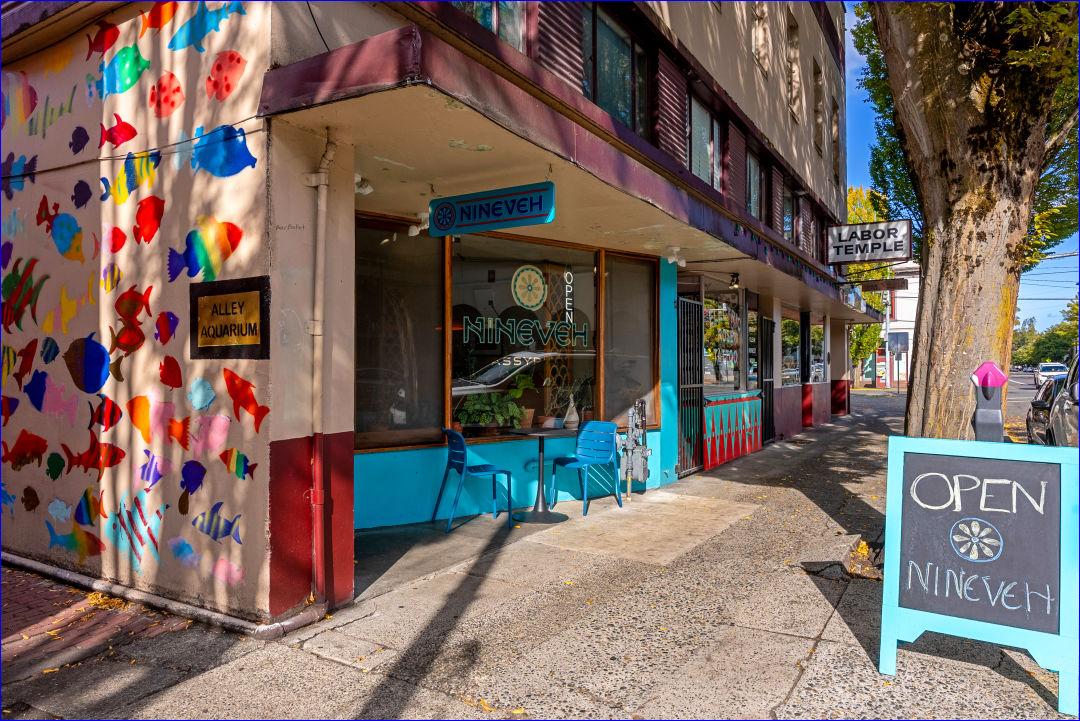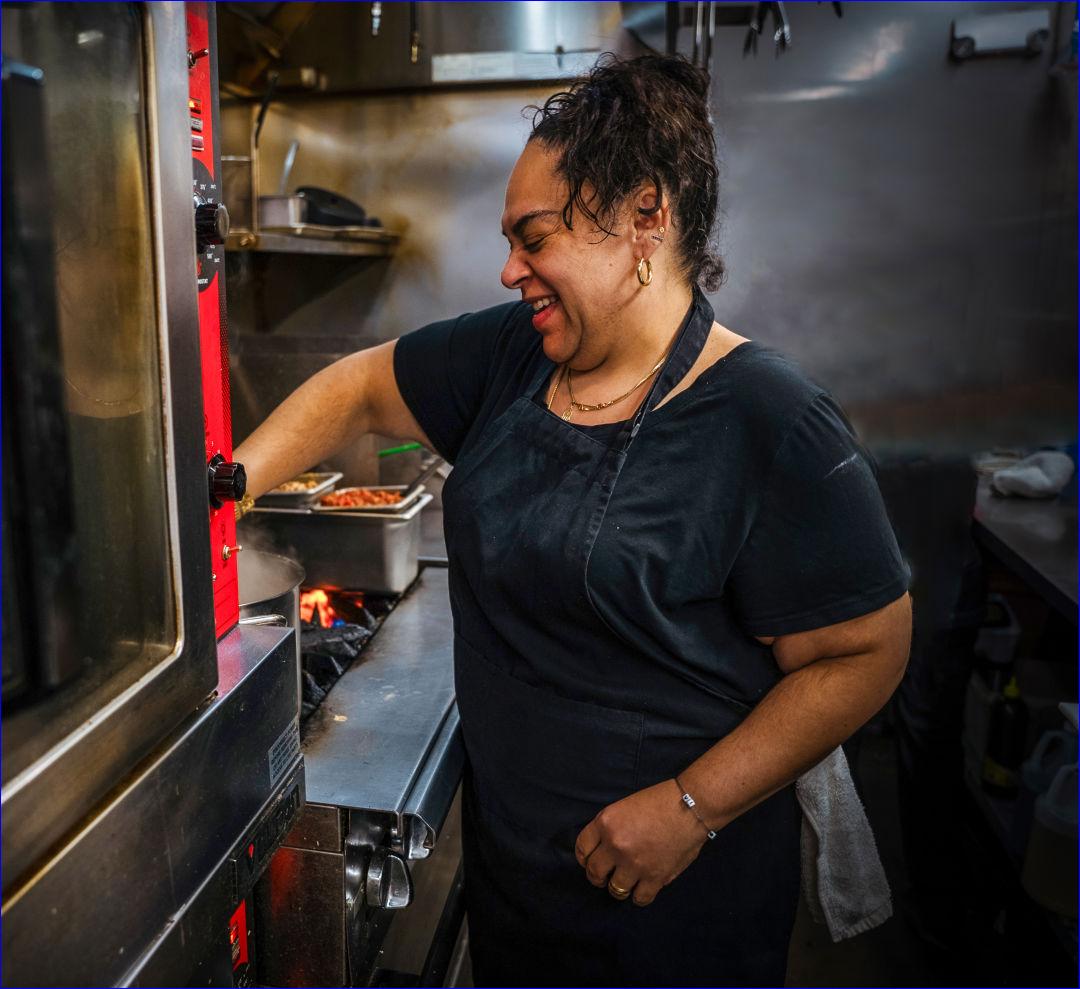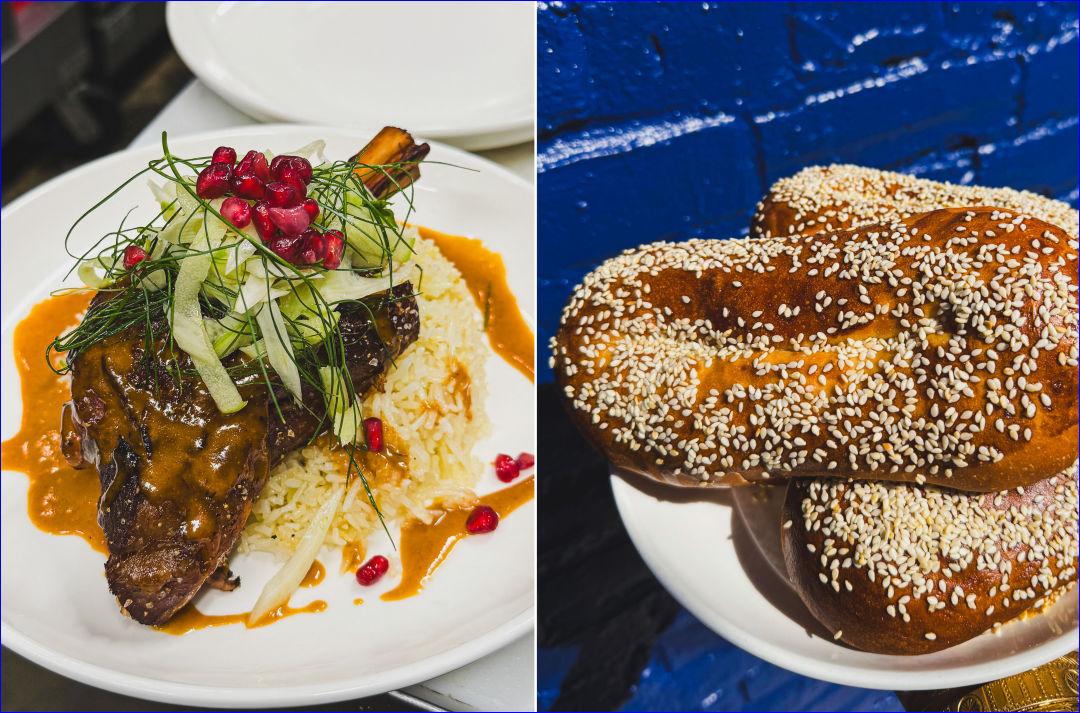


Jacob David, raised with his sister in Toledo, Ohio, called in some Midwest backup. He contacted the health department in Dearborn, Michigan--home to a lot of Middle Eastern cuisine. "I asked them what the rules and policies are, and I took all the notes, and I helped the [Thurston County] health department basically write their rules," he says.
The food truck, called Nineveh Assyrian, was an instant hit, busy from day one in its parking spot next to a long-running taco truck, about a block from Olympia City Hall. Besides the slow-roasted meats, they dished falafel and hand-cut fries dusted in za'atar. It was good food for takeout, and did especially well during the pandemic 10 years later.
The Davids knew that Olympia needed shawarma; when Lisa came to Olympia to study at Evergreen State College she was taken aback by the lack of Middle Eastern food. "My first visit here was in '98 and I saw it myself; it was culture shock," remembers Jacob. "Maybe lack-of-culture shock."
But the Nineveh food truck, which last year expanded into a full restaurant, is rare in both Olympia and the entire US. It focuses not on general Middle Eastern cuisine, but specifically Assyrian food. Does the name not ring a bell? Dig deep into long-forgotten social studies knowledge.
Assyrians are, as Jacob describes, "ancient indigenous Mesopotamians from northern Iraq, western Iran, southern Turkey, and eastern Syria." The siblings are Assyrian on their father's side, with family roots in Iraq and Iran. As Lisa puts it, "It's an extremely tiny population with, like, an almost dead language," largely driven out of their homeland due to modern conflicts. But the world's oldest cookbooks were from Mesopotamia--4,000-year-old tablets held at Yale University describe lamb and other stews.
As the creative chef in their sibling partnership, Lisa got to expand their menu when the brick-and-mortar restaurant opened last year. That meant soups like bushala (yogurt-based) and chipteh (a rich meatball soup). Persian influence to the cuisine means tastes of saffron and pomegranate molasses. Jacob went to Iraq to learn how to make traditional barley bread in a tannur, or clay oven, then adapted it to be cooked on a steel dome saj in the restaurant.

Though the Assyrian Empire may have faded a long time ago--Nineveh is named for the ancient capital city that fell in 612 BC--the restaurant's flavors have broad geographic roots. Amba, a fermented, pickled mango that Lisa uses for sauces, was an Indian staple brought to Baghdad by Iraqi Jews. It's a popular side for falafel today in both Iraq and Israel, says Lisa, but "you're not gonna find it in other countries."
Today the Davids' extended family has left Iraq, but their relatives' faces illuminate one of Nineveh Assyrian's walls in framed photos, all in black and white with gold gilt frames. The restaurant interior pops with bright teal vintage chairs. Lisa, who studied ceramics at Evergreen, made the lighting, and screens use a fish scale pattern from an ancient Assyrian palace.

When Lisa first dreamed of an Olympia restaurant in the 1990s, she just wanted to get good falafel without having to drive to Seattle. Now she and Jacob see huge interest from locals, often selling out whenever they experiment with new specials. The food truck still draws lines, and on a recent weeknight I saw Nineveh the restaurant fill to capacity by 6pm, chatter bouncing off the teal walls in the space's rear bar.
"It's really great to see people's palates expanding," says Jacob.
Nineveh Assyrian
728 4th Ave E, Olympia (food truck)
113 Capitol Way N, Olympia (restaurant)

or register to post a comment.